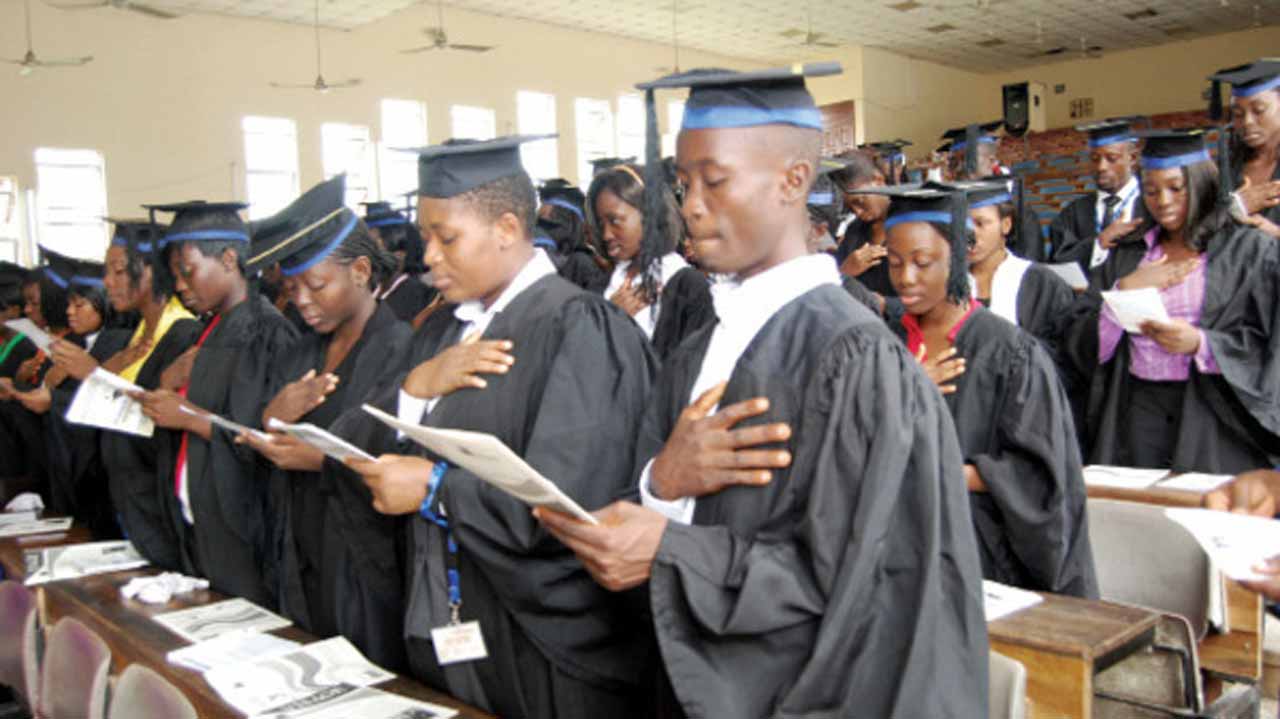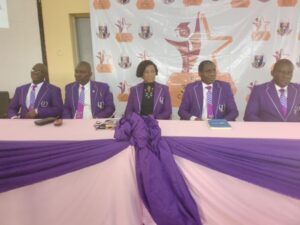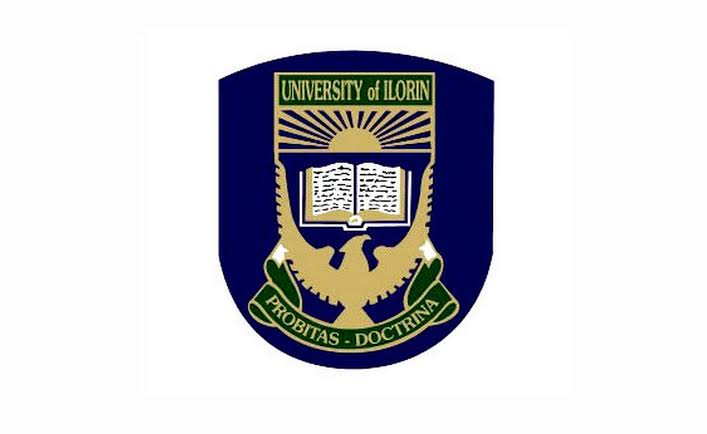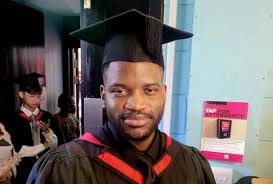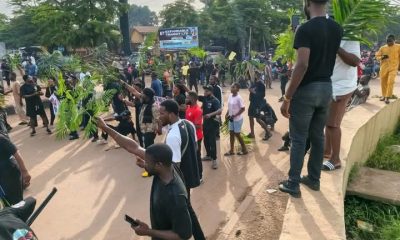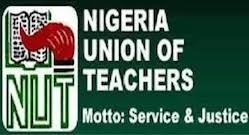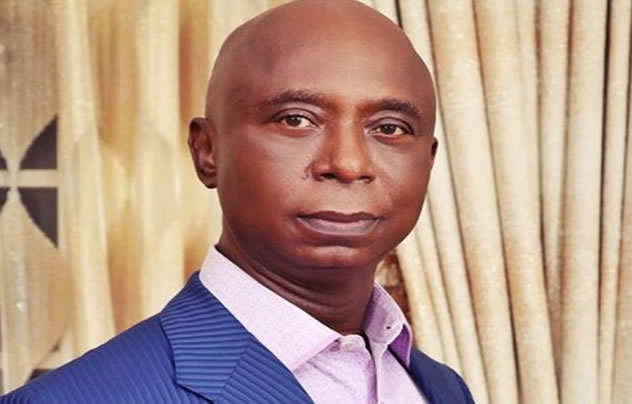Education
GSS Ilorin Class of 91 Presents Office Furniture to Alma Mater
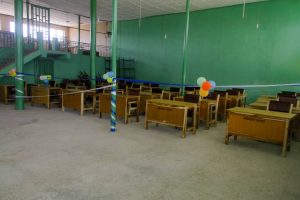
The Government Secondary School (GSS) Ilorin 1991 Set Old Boys Association has donated a 30-set of office tables and chairs worth N750, 000 to the alma mater.
Prof. Tahir Yusuf, a member of the association, while presenting the furniture, said giving back to the school that produced them was a thing of joy.
Yusuf, who was represented Mr Babatunde Adeyemi, the head boy at the time, said the presentation of the furniture was part of the two-day programme to celebrate the 30 Years Reunion Meeting of the set.
The occasion, which was graced by many old students within and outside the country, was also monitored by the News Agency of Nigeria (NAN) via zoom in Abuja.
He said since government cannot do the work alone, it was the responsibility of everyone, especially the old students, to contribute to make things much better for one’s alma mater.
“It is actually a thanksgiving day for everyone of us today because it is neither by our strength nor our wisdom that we are present here.
“Some of our mates are no more today but we will continue to pray for them.
“As old boys, knowing what the school has positively impacted into our lives, we will continue to give back to the school.
“And that is the essence of this particular gathering.
“Our aim is to bring back the lost glory of GSS Ilorin. We want to see it as being the best not only in Kwara State but Nigeria as a whole,” he said.
The medical practitioner and a senior lecturer at the Department of Medicine, Usmanu Danfodiyo University, Sokoto, said that the meeting was also to strengthen the relationship among members after leaving secondary school 30 years ago.
“Quite a number of my school mates, I am meeting them today after 30 years.
“Some, I can recognise them and some I could not.
“That is the essence of this gathering,” he said.
He recalled that members of the association, which started with seven people about a year ago, had increased to about 148.
“We still have a lot of work to do to connect with others because during our set, we had SS3 classrooms, spreading from ‘A’ to ‘H’ with not less than 70 students in a class,” he said.
Yusuf, who noted that members of the set are spread across various professions, thanked the current school Principal, Mr Baba Awodi, for keeping the flag flying.
The National Vice President, GSS Ilorin Old Boys Association, Alhaji Mohammed Adebayo, thanked members of the ’91 Set for their contribution and urged them not to relent in the effort at making the school a centre of excellence.
Elder Philip Ajibola, a Geography Teacher during the period, thanked the old students for the good gesture.
In his goodwill message, the retired teacher urged members of the set to continue to strive to move the union forward.
Corroborating, Mr Gbenga Oroyinyin, who was also a teacher at the time, enjoined members of the association to work in oneness towards achieving the aims and objectives of the organisation.
The Principal, Mr Awodi, while receiving the donation, thanked the old students for their support.
He said GSS Ilorin alumni had done excellently well towards improving the education standard of the school over the years.
“The GSS Ilorin Old Boys Association has been the best in Kwara State. I can say it anywhere.
“If you come to GSS, look at all the classrooms; different sets of old students have done one thing or the other in the school.
“They are really complementing government’s effort. Look at the classrooms, the hall, the science lab, library, dinning hall, the clinic, different sets did all these renovations,” he said.
Awodi informed that the various supports given by the old students had earned the school two commendation letters from the state’s Ministry of Education and Teaching Service Commission.
“I really thank every one of you for a wonderful job,” he said.
NAN reports that GSS Ilorin, the first secondary school in Kwara with the motto: “No Struggle, No Success,” was established in 1914 and the school had produced various leaders in all walks of life.(NAN)
Education
How female Medicine Degree Holder Abandoned Certificate for Carpentry- Bugaje

The Executive Secretary, National Board for Technical Education (NBTE), Prof. Idris Bugaje has expressed the need to promote inclusivity, especially for women and persons with disabilities in technical education.
Bugaje stated this in Abuja while assessing the impact of President Bola Tinubu’s administration after two years in office.
He appealed for greater gender inclusivity in vocational and technical education, stressing that deliberate policies such as scholarships and incentives could help bridge the gender gap.
In support of his position, Bugaje shared an inspiring story of a female medical doctor who abandoned her medical career to pursue carpentry.
“There is a story I want to share with you, about a girl who was interested in becoming a carpenter.
“The father was a carpenter and they were four children in the family, three boys and herself.
“Whenever she joined the boys to the workshop, the father would send her away, saying, `you are a girl, go back to the house, you are not supposed to be a carpenter’’.
“Without giving considerations to the passion of the young girl, the father sent her to a medical school.
“She graduated with the MBBS, went and did the one-year internship after graduation, and chose a role as a medical doctor.
“After that, she came back to the father, returned the MBBS certificate to him, and thanked him.
“Afterward, she told the father that her passion is in carpentry, not to practice as medical doctor,” Bugaje narrated
He added that after spending seven years on medical training, the father had no option but to send her to Turkey to learn how to make furniture.
Addressing cultural and societal barriers often faced by young women in technical fields, Bugaje appealed to parents to support their daughters’ interests in trades like plumbing, electrical installation, and carpentry.
He also called on policymakers to prioritise passion and skill development among youth, especially girls, noting that such encouragement could lead to greater innovation and self-reliance.
“If they want to become carpenters, ICT experts, or POP artists, allow them.
“In skills’ training, passion is very important. That’s what motivates children and helps them innovate.
“We need to harness these innovations if the country is to move forward and rise beyond being a third-world nation,” he said.
He emphasized the need to have deliberate policies to encourage women to come into TVET through scholarships and other incentives. (NAN)
Education
WAEC Apologies for Conducting English Exam Late, Cites Leakage Prevention

The West African Examinations Council (WAEC) has apologized for delay in conducting English Language Paper 2 in the ongoing 2025 West African Senior School Certificate Examination (WASSCE).
The took place on Wednesday evening.
In a statement by Moyosola Adesina, Acting Head of Public Affairs Department of
WAEC, the council said that it encountered challenges.
”While maintaining the integrity and security of our examination, we faced considerable challenges primarily due to our major aim of preventing leakage of any paper.
“We recognise the importance of timely conduct of examinations and the impact of this decision on candidates, their schools and parents, and we sincerely apologise for any inconveniences caused,” WAEC stated.
It said that it successfully achieved its objective but it inadvertently impacted the timeliness and seamless conduct of the examination.
“In spite of our best efforts, we encountered logistical hurdles, security concerns and socio-cultural factors that negatively influenced our operations,” WAEC said.
The council re-affirmed its commitment to upholding the highest standard in examination conduct, and pledged to continue to promote academic excellence. (NAN)
Education
FG vows full WAEC CBT shift by 2026 – Minister

The Minister of Education, Dr Tunji Alausa, has reaffirmed the Federal Government’s commitment to fully transitioning to Computer-Based Test (CBT) examinations for the West African Examinations Council (WAEC) and other exam bodies by 2026.
Dr Alausa made this known while monitoring the conduct of WAEC’s CBT examinations in Abuja on Wednesday.
He expressed optimism about Nigeria’s capacity to modernise its examination system and reduce widespread malpractice through digital innovation.
Commending WAEC’s initiative, the minister described the shift from traditional pen-and-paper exams to CBT as a historic and crucial step toward fairness and educational integrity.
“We are working very hard to eliminate fraud in our exam system, and WAEC is taking the lead,” he said.
Highlighting the advantages of CBT, Alausa noted that the system simplified the exam process while significantly curbing cheating.
“We now have clear evidence that when exams are done using technology, the level of fraud is minimised to almost zero,” he stated.
He further lauded WAEC’s internal safeguards, explaining that the CBT system was operated via a secured Local Area Network (LAN), making it “literally impossible” to hack.
According to the minister, by Nov. 2025, all WAEC multiple-choice exams will be conducted using CBT.
He added that essay questions and NECO examinations would follow suit by 2026.
On infrastructure and logistics, particularly in remote areas, Alausa acknowledged the challenges but assured that scalable solutions are in progress.
“Are we going to be ready to provide every single needed infrastructure by November? Absolutely not.
“But as we move into the future, we will be ready. We have to challenge ourselves as government,” he said.
He also addressed concerns over the logistics of conducting multiple exams.
“In WAEC, the average student takes about eight to nine papers.
“They do it over several days. Those are the logistics we, as administrators, have to work through, and we already are,” he explained.
The ongoing WAEC exams, which began on April 24, are scheduled to conclude on June 20, 2025.
A total of 1,973,253 candidates from 23,554 schools are participating. Of this number, 979,228 candidates are male, accounting for 49.63 per cent, while 994,025 candidates are female, making up 50.37 per cent.(NAN)

